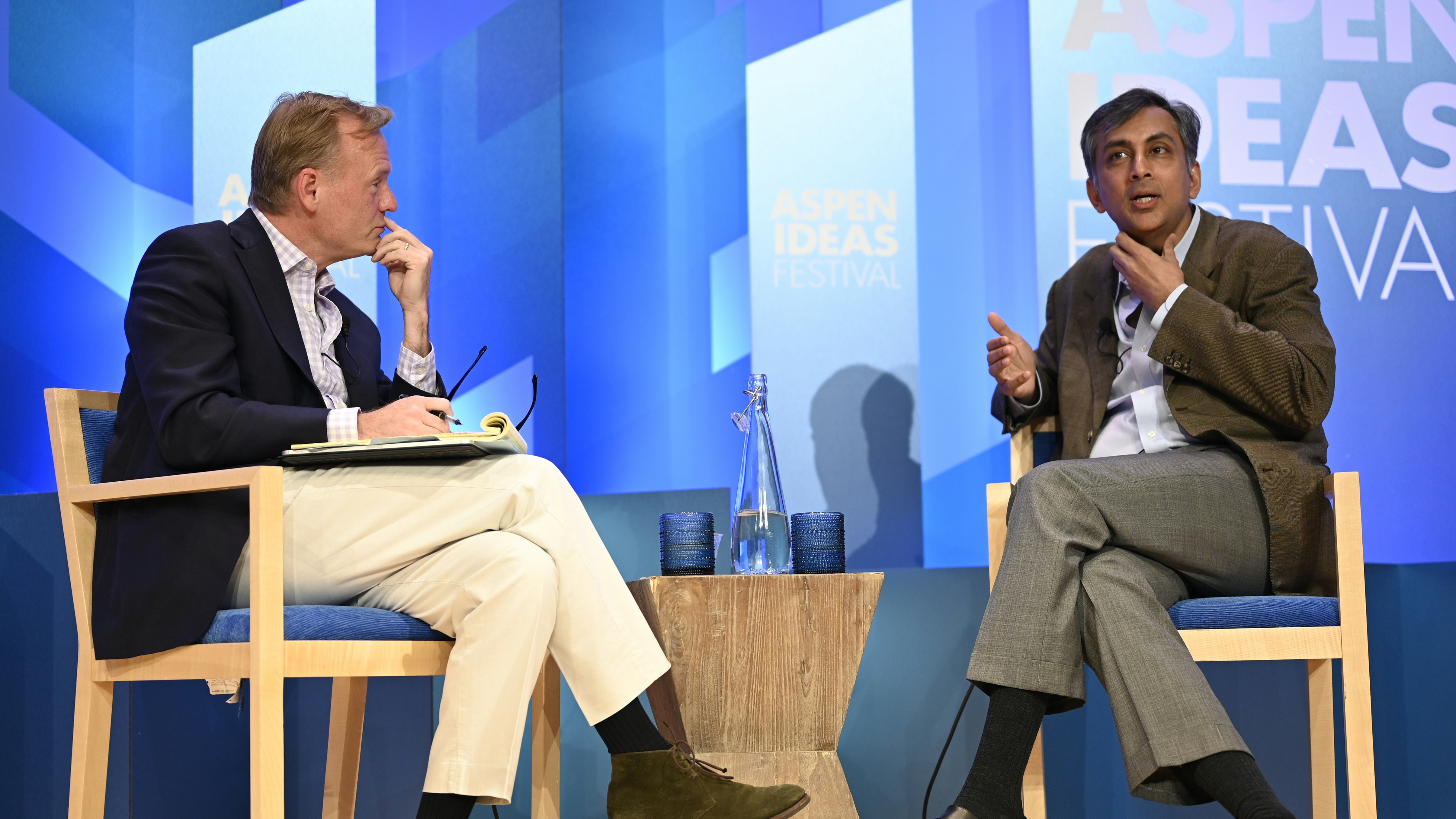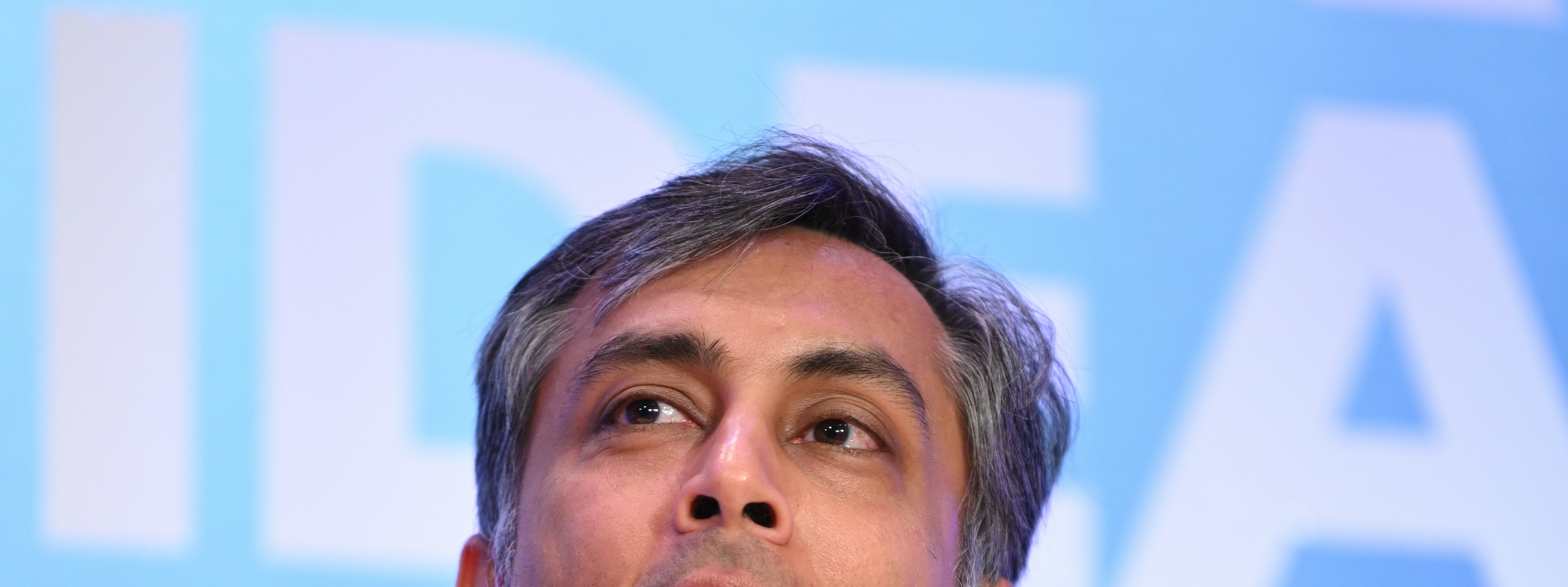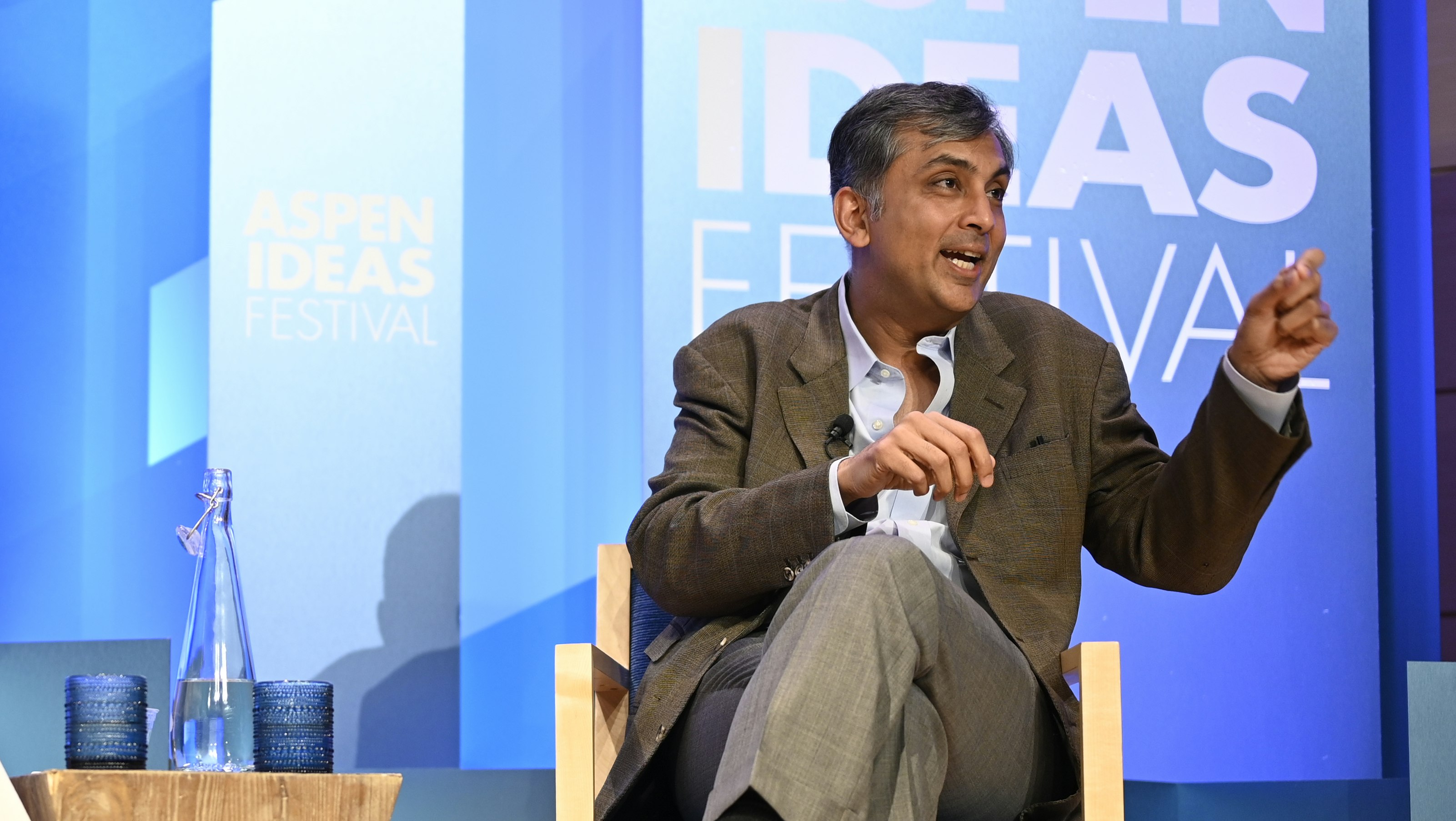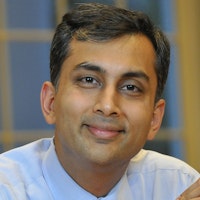
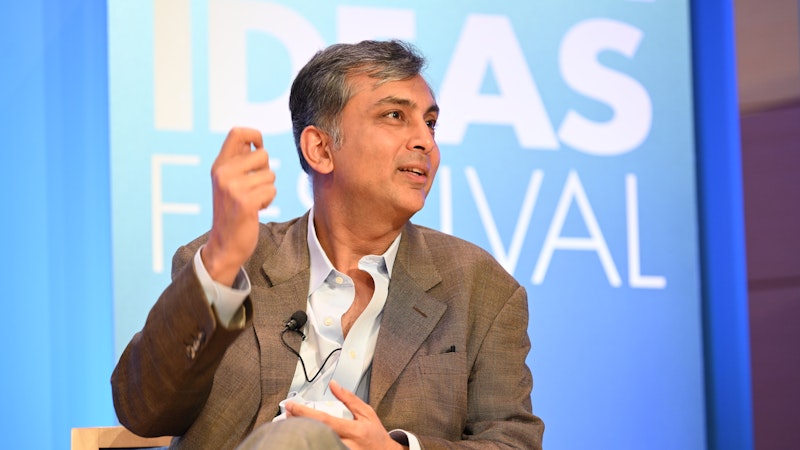
Restoring Virtue to Finance
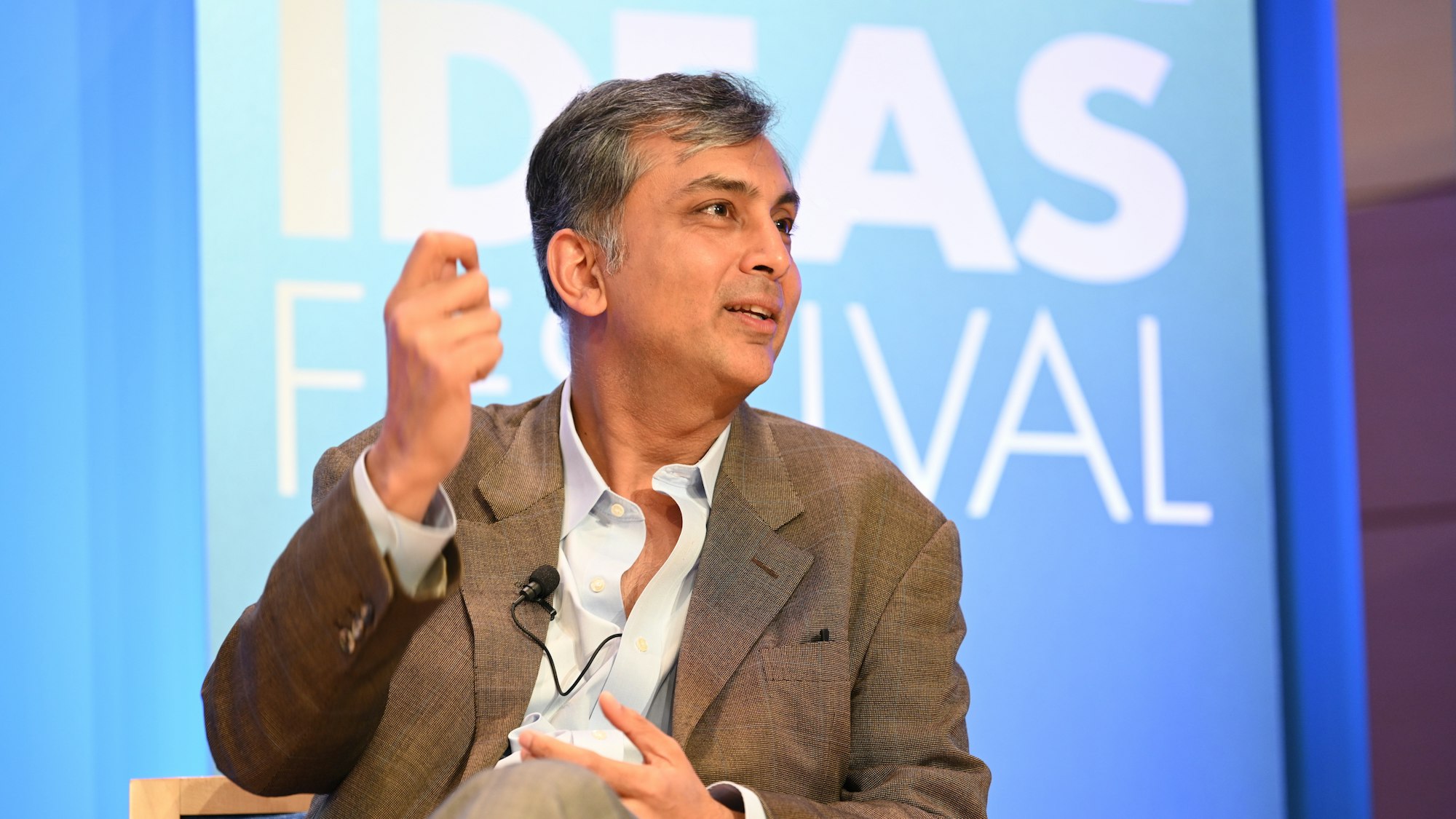
There are fantastic things about investment, but we’ve fallen prey to their excesses.
Setup
Finance is the engine of capitalism, according to Harvard economist Mihir Desai. Finance is what makes our whole economy tick, and its 600 year history is filled with success stories. Has finance reached a point, though, where its pervasiveness has become a weakness? John Dickerson, correspondent for CBS News’ “60 Minutes,” sits down with Desai to dig into what those working in finance should do to restore what Desai says the financial sector has lost.
Saving finance from itself
Capitalism wouldn’t function the way it does without the mechanisms that finance creates, says author and Harvard economist Mihir Desai. Put simply, finance moves capital from those who have it to those who need it. Desai says that when finance works as it should, the results are unparalleled. But, he warns, finance done poorly can have major consequences. Desai explains how finance has drifted, and why it needs to be reined in:
Desai points fingers at what’s called value extraction — that, investors or businesses whose main focus is capturing value for themselves, not creating more for everyone (value creation). Desai compares value to a pie, and value extractors want to grab as much of the pie as possible, instead of helping to grow the pie for everyone.
Big IdeaA lot of the problems that people perceive in capitalism today…have to do with how finance has changed in the past 30 years.Mihir Desai
Finance and the human condition
In order to understand the stakes of what’s at play when finance goes awry, Mihir Desai digs into the long history of capitalism and finance. Starting with prototype insurance companies and investment groups, Desai says finance has grown inextricably alongside our modern understanding of both society and humanity:
There’s a human face to finance that Desai claims capitalism would do well to remember. Spreadsheets, tables, and crunching numbers are great tools, but the abstractions they represent don’t capture the full picture of the humanity underlying it all.
Breaking free from the investor mentality
So what happened over the past century that set finance on its current course? Mihir Desai traces it back to an unlikely culprit: the investment management industry that grew out of pension funds. Pension funds gave enormous amounts of money to investment managers — so much money, in fact, that their way of doing things became the default. Desai and John Dickerson explain further:
This exchange has been lightly edited for clarity
-
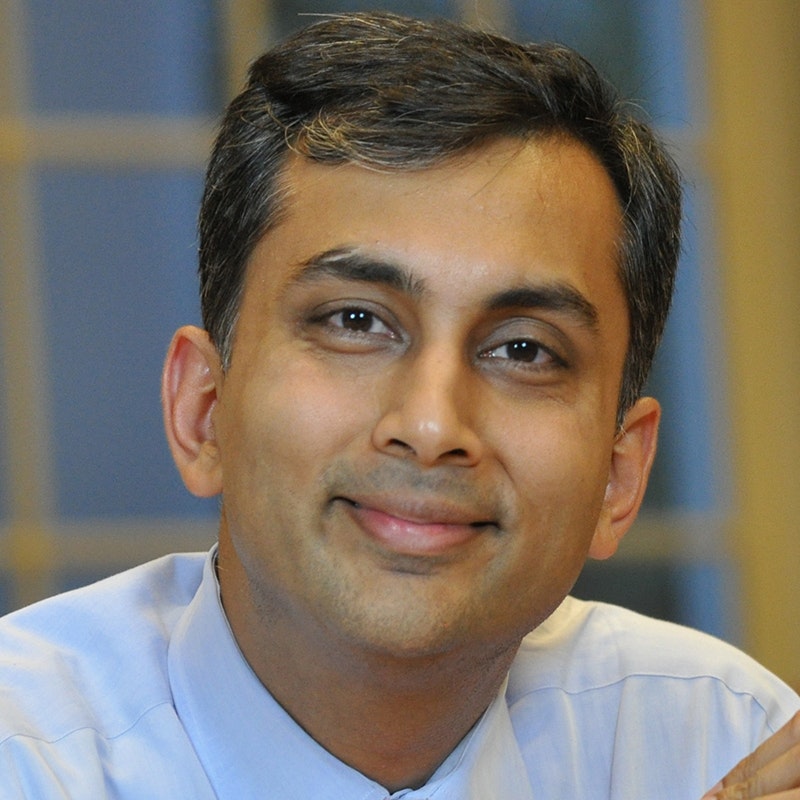
Mihir Desai: [The investment management industry’s] way of thinking about the world has come to dominate. That’s in everything. It’s in the way we think about share buybacks, it’s in the way we do social programs… How do we do nonprofits today? Everyone has to have an ROI. If you don’t have a return on investment model in your not-for-profit, you got a problem. That’s the dominance of an investor mentality, and when you come to think of it, it’s kind of absurd.
-

John Dickerson: But wouldn't people say we’re leveraging the investor mentality to do good things?
-

Mihir Desai: We are, but there is this sense in which we’ve contorted social policy and not-for-profits to have an investor mentality. So low income housing is a great example — that is the way we build low-income housing. If you think about a problem in the country that is really severe, it is housing shortages for low-income [communities]... And yet we really do it in this really weird, perverse way, which is that we sell tax credits to investors so that they can decide where to put low-income housing. It’s a complete Rube Goldberg machine, yet that’s the way it gets done.
Desai says investment managers dictate the rules because they hold so much sway over the economy, and that’s a problem. Desai explains that one way of solving one problem in society isn’t the solution to every problem.
The micro and macro of fixing investment
Despite his critiques of the US financial system, Mihir Desai says that a handful of adjustments would go a long way to course-correcting the bedrock of capitalism. There’s a micro, he says, and there’s a macro:
On the more discrete level, Desai explains that investment managers need to make their decisions based off more than spreadsheets and statistics — they need to return humanity to finance. And on a larger scale, pension fund managers will have to take a more active role in deciding how and where their capital gets used. Otherwise, it’s too easily taken advantage of by the sort of value extractors that Desai says are leaching off true value creators.
Learn More
Additional Information
Resources
"Wisdom of Finance: Discovering Humanity in the World of Risk and Return" by Mihir Desai
Explore More
Society


Being a parent today is full of stress, pressure and information overload. Experts offering advice are everywhere, and for some parents, the wealth of available resources can...

Capitalism has delivered prosperity for many, but not for all. Disparities according to gender, race, and geography have left millions behind, while rising concentrations of w...


The quest for work-life balance is never ending for many of us. The advice in this talk from the 2023 Aspen Ideas Festival still holds a lot of relevance, so we’re bringing it...


While the workforce continues to evolve in response to economic shifts and technological advancements, one thing is certain — the traditional blueprints for education and the...


Living as a trans person in America comes with its share of challenges, which are sometimes even life-threatening. But some say it can also open up access to incredible freedo...

Entrepreneurs view the world differently. Where others see challenges, they see opportunities. They’re a group of self-starters and strivers with the courage to take big risks...

Global conflicts and health crises have put into stark relief deeply-ingrained gender roles in society. Yet the past years have also seen record-high numbers of women running...

The people in our lives shape who we are. But great relationships don’t just happen — they take care, intention, and ongoing effort. How do you know when to let go, adjust exp...


Advances in medicine and healthy living mean that more and more people will live to be 100. But just because their bodies can last doesn’t mean their bank accounts will keep u...


In the early days of cable television, there wasn’t a single network aimed at Black audiences. Sheila Johnson and her husband at the time saw an opening, and put all their hop...


Owning a professional sports team is not for the faint of heart. Results are volatile and wins and losses come with the strong emotions of a city’s fan base. But it’s a sound...


Looking around and experiencing the suffering and injustice in the world can make it difficult to believe that happiness exists. But the Judeo-Christian tradition teaches that...


This episode is from the 2022 Aspen Ideas Festival, but we’re bringing it back because it’s still as relevant as ever. Though it can sometimes feel like conflict and discord i...


Sir Ken Robinson believed that as a society, we tragically underestimate and underutilize human ability. We create linear systems for our minds modeled on industry and manufac...


Young people in America are struggling. The causes are varied and may not be entirely clear, but the results are unfortunately unmistakable. Many of our youth feel lonely, iso...

New York Times columnist and bestselling author David Brooks is known for bringing his thoughtful reflections on politics and culture, but at this year’s Aspen Ideas Festival,...

Jump in by watching our 15 most popular talks of all time. From black holes to jazz and civil rights to psychology hacks, we've collected the talks that remain audience favori...

Finding the national and global headlines understandably bleak lately? Whether you need mental distraction or stimulation, engross yourself in compelling topics and get a gli...

The United States spends $4.3 trillion—almost one fifth of the nation’s GDP—on health care. As the scale of the medical enterprise expands, venture capitalists are pursuing th...

Today's kids are coming of age against a backdrop of political, social, technological and economic upheaval. While these circumstances are shaping a precocious generation that...







